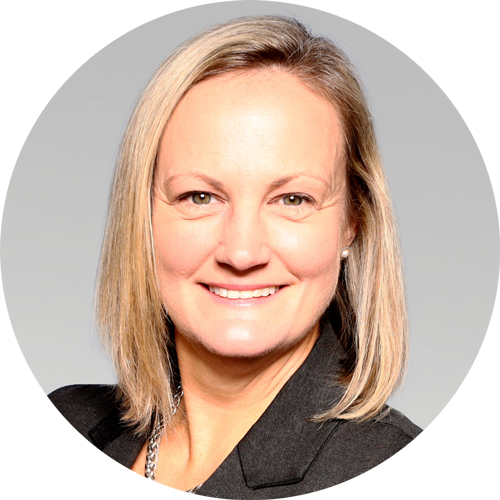Healthcare providers often worry that new technology will alienate patients—that it will feel impersonal, experimental, or even intrusive. But when it comes to AI in hospitals, the story is surprisingly different. Research shows that patients don’t fear being observed—what they fear is being ignored. Rather than resisting oversight, many welcome it if it means they’re being actively cared for.
To understand this paradox, last year we surveyed nearly 500 adults over 40 about their comfort with
Read More
Health IT & Digital Health-Opinion | Op-Eds | Guest Columns | Analysis, Insights - HIT Consultant
Agentforce: How AI Agents Are Integrated into Healthcare
AI agents are arguably one of the most avant-garde trends in Artificial Intelligence (AI). Recently, Salesforce has made a push into this territory with its Agentforce solution. This platform is designed to build and deploy trusted assistive and autonomous AI agents for healthcare. Could this development mark a significant turning point in healthcare operations? Let's explore.
AI Agents: The Next Evolution Is Here
For businesses, the allure of AI agents is quite attractive.
Read More
The Future of MedTech Compliance: Why Dynamic Data is Transforming QARA
Technology advances are driving today's rapidly evolving medical device landscape and, as a result, traditional Quality Assurance and Regulatory Affairs (QARA) approaches are becoming increasingly obsolete. The industry is at a critical inflection point where static data management can no longer keep pace with the volume and complexity of global regulatory changes. This transformation is fermenting a fundamental shift toward dynamic data systems powered by artificial intelligence.
The
Read More
AI Agents vs. Chatbots: Understanding Agentic AI’s Role in Healthcare
As buzz around conversational AI reached a fever pitch last year, a new term began gaining traction: "AI agents."
Over the past twelve months, Google searches for AI agents have increased nearly tenfold. While the category of "agentic AI" may seem to have appeared from nowhere, it has quickly become one of the most talked-about trends in tech.
Yet, descriptions of agentic AI are still largely abstract, making it difficult to grasp what sets it apart or how it might apply in
Read More
Navigating the New HIPAA Security Rule: A Guide for Healthcare Leaders
Major cybersecurity breaches continue to plague the US healthcare industry, and on December 27, 2024, the U.S. Department of Health and Human Services (HHS), via its Office for Civil Rights (OCR), issued a Notice of Proposed Rulemaking (NPRM) to amend the HIPAA Security Rule, titled "The HIPAA Security Rule to Strengthen the Cybersecurity of Electronic Protected Health Information". Comments were requested and over 4000 were received before the comment period ended on March 7 2025. Let's dissect
Read More
Emerging Cyber Threats to AI-Based Diagnostics and Clinical Decision Support Tools
As hyperbolic words go, transformation ranks near the top of the list. Yet, when something is truly transformative, it’s undeniable. And that is exactly what we have been witnessing with the use of artificial intelligence (AI) within the healthcare industry; a true digital transformation revolution.
With the AI healthcare market valued at $26.69 billion in 2024, and projected to reach $613.81 billion by 2034, this transformation is not only reducing operational friction in
Read More
The Seller’s Guide to Digital Health: Preparing for a Profitable Practice Sale
When it comes to preparing a healthcare practice for sale, many owners tend to focus on traditional business metrics—revenue trends, operational efficiency, and patient loyalty. But in today’s market, one critical driver of valuation is often overlooked: the strength of the technology infrastructure.
Healthcare buyers are increasingly concerned with not just the usual factors like financials, but how ready a practice is to handle and mitigate digital risks, integrate with new systems
Read More
6 Communication Strategies to Improve Rural Health Outcomes
According to the Centers for Disease Control and Prevention (CDC), rural Americans have a higher risk of premature death from heart disease, cancer, respiratory disease, stroke, and unintentional injuries than urban residents. Challenges related to social determinants of health (SDOH) such as poverty, lack of healthy food options, and poor transportation contribute to the problem.
Access also remains a key hurdle. One in five Americans lives in a rural area, where provider shortages account
Read More
Strategies for Promoting Workplace Safety for Nurses
Nurses bring dedication to health systems, outpatient centers, hospitals, and more, committing their lives to caring for those in the community who need it most. Unfortunately, that commitment often comes with the risk of violence in their workplace. One of the most impactful ways healthcare systems can show nurses that they care is through a strong workplace violence prevention plan.
The Data on Workplace Violence in Healthcare
In 2024, National Nurses United published a report
Read More
Reimagining Parkinson’s Research: Unlocking the Power of Real-World Data and AI
Parkinson’s Disease (PD) is considered one of the most complex and challenging neurodegenerative disorders of our time. It affects nearly one million people in the United States alone, with approximately 90,000 new diagnoses each year. Characterized by progressive motor symptoms such as tremor, rigidity, and bradykinesia, as well as a host of non-motor symptoms, Parkinson’s presents with a wide range of manifestations and variable progression patterns. This complexity makes it particularly
Read More










